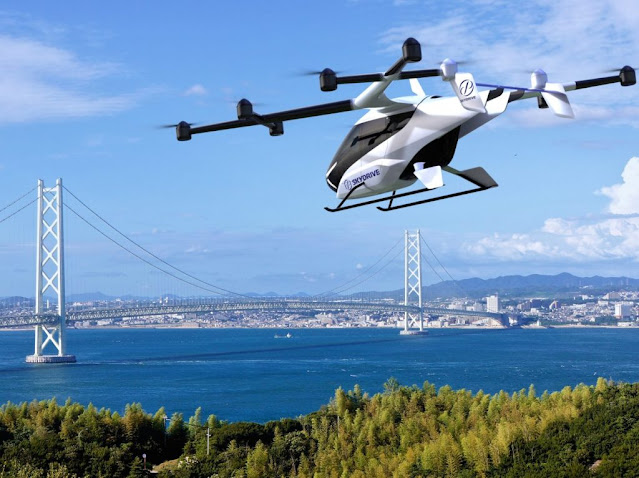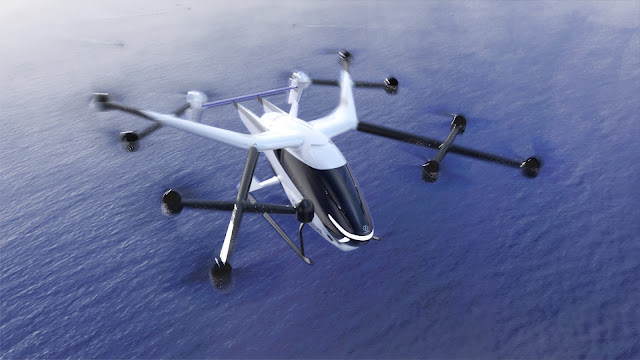As part of the agreement, SkyDrive will establish a
wholly-owned production subsidiary that will assemble the vehicles at Suzuki's
plant located in Shizuoka Prefecture, central Japan. This announcement follows
SkyDrive's recent unveiling, during the Paris Airshow, of a plan to enhance the
design of its upcoming vehicle. The new design, boasting an overall length of
approximately 13 meters and a height of 3 meters, will enable the vehicle to
accommodate three passengers instead of two and increase the maximum flight
range from 10 to 15 kilometers.
Suzuki and SkyDrive initially announced their
partnership in the field of flying vehicles back in March 2022, and since then,
they have been engaged in discussions to finalize the specifics of their
collaboration. In September of that year, Suzuki acquired an undisclosed stake
in SkyDrive, further solidifying their commitment to the venture.
The newly inked agreement between Suzuki and SkyDrive
paves the way for the joint development of a flying car, anticipated to be
ready as early as spring 2024. As part of the deal, Suzuki will assist in
recruiting personnel for the start-up's dedicated subsidiary, which will
oversee the project. The two companies plan to manufacture the small electric
passenger aircraft at Suzuki's facility in Shizuoka Prefecture.
Moreover, SkyDrive recently announced a design
modification for its next-generation flying vehicle, increasing its passenger
capacity from two to three individuals. Following its official debut at the
2025 Osaka Kansai Expo, SkyDrive aims to commence mass production of the
aircraft in 2026.
The collaboration between Suzuki Motor Corp. and
SkyDrive Inc. represents an important step forward in the development and
production of flying cars. With their shared vision and expertise, these
companies are poised to make significant contributions to the future of
mobility and transportation. By capitalizing on the growing demand for flying
vehicles, Suzuki and SkyDrive are set to revolutionize the way people travel
and shape the future of urban transportation.
In an era of rapid technological advancements, the
collaboration between Suzuki Motor Corp. and SkyDrive Inc. is poised to
redefine the possibilities of transportation. As these two industry leaders
converge to shape the future of mobility, one question arises: Are we on the
cusp of a new era where flying cars become an integral part of our daily lives?
Join us as we embark on this thrilling journey, where the sky is no longer the
limit.
Related Articles:
Rising Sun: Navigating Japan's Future




Comments
Post a Comment